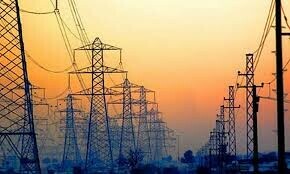DUBAI: Saudi Arabia has offered to reduce oil production if rival Iran agrees to cap its own output this year, in a major compromise ahead of talks in Algeria next week, four sources familiar with the discussions told Reuters.
The offer, which has yet to be accepted or rejected by Tehran, was made this month, the sources told Reuters on condition of anonymity.
Riyadh is ready to cut output to levels seen early this year in exchange for Iran freezing production at the current level, which is 3.6 million barrels per day (bpd), the sources said.
“They (the Saudis) are ready for a cut but Iran has to agree to freeze,” one source said. Three more sources confirmed the offer was presented to Tehran.
A source familiar with Iranian thinking declined to comment on details of the proposal but did not rule out the possibility of a compromise next week: “Let them all talk face to face.” There was no official comment from Saudi Arabia or Iran.
Saudi output usually drops in winter and spikes during hot summer months, hence Iran could dismiss the proposed reduction as an attempt by Riyadh to present a natural decline as a cut.
Iran has been promising to boost output to 4m bpd, although production has stagnated in the past three months at around 3.6m bpd, indicating the new push might be difficult without additional investments.
The first source did not say by how much Riyadh would cut if Iran agreed to a freeze.
Riyadh’s production has spiked since June due to summer demand, reaching a record high in July of 10.67m bpd and edging down to 10.63m bpd in August. From January to May, Saudi Arabia produced around 10.2m bpd.
Previously, the Saudis have refused to discuss production cuts.
Opec officials from Saudi Arabia and Iran met this week in Vienna. According to sources, the gathering did not discuss the Saudi proposal, focusing instead on baseline production figures. The meeting produced no breakthrough, the sources said.
Two sources said Saudi Arabia’s Gulf Opec allies the United Arab Emirates, Qatar and Kuwait were expected to contribute to any output reduction.
Saudi Arabia, by far the largest producer in the Organisation of the Petroleum Exporting Countries (Opec), will shoulder the biggest cut, the sources said.
The proposal can be seen as a shift by Riyadh, which orchestrated the current Opec policy in 2014 by refusing to cut output alone to support prices and chose to defend market share against rivals, particularly high-cost producers.
A fall in oil prices to $30-$50 per barrel from levels as high as $115 seen in June 2014 led to a boost in global oil demand and a decline in high-cost supplies such as those from the United States.
But the Saudi strategy caused a rift in Opec, whose poorer members have faced a budget crisis and unrest. Riyadh and its Gulf allies also had to tighten their belts after a decade of generous public spending.
As the pain of cheap oil grew and pressures on Saudi finances increased, Riyadh and Tehran signalled they were willing to show more flexibility to prop up prices.
However, the first attempt at a global production pact collapsed in April when Riyadh insisted Tehran participate. Iran has said it will not join any such agreement until it regains market share and boosts output to pre-sanctions levels of around 4m bpd.
Opec members will meet on the sidelines of the International Energy Forum, which groups producers and consumers, in Algeria from Sept. 26-28. Non-Opec producer Russia is also attending the forum.
Published in Dawn September 24th, 2016












































Dear visitor, the comments section is undergoing an overhaul and will return soon.